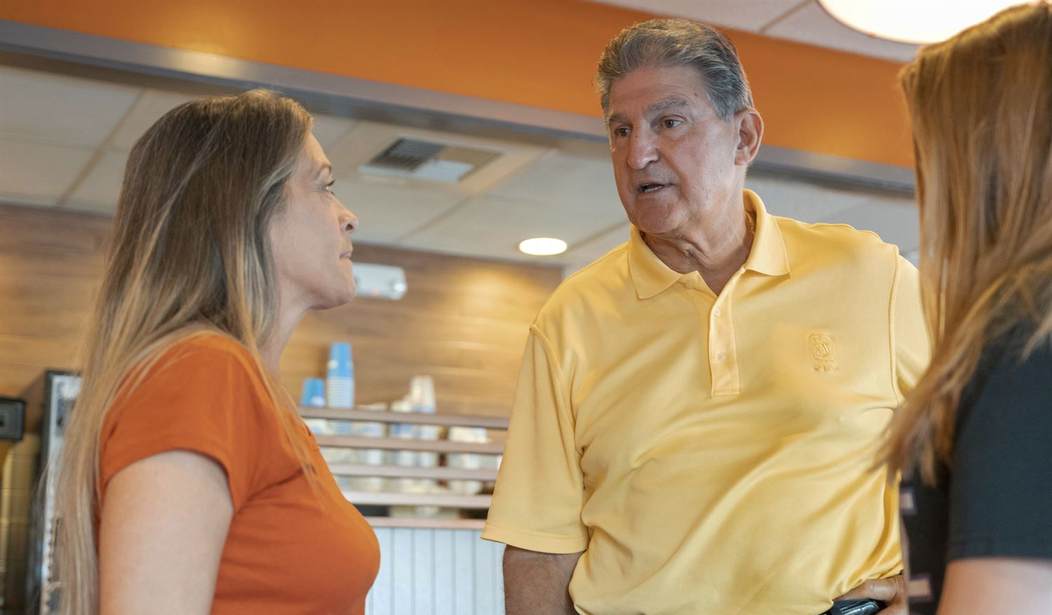Sen. Joe Manchin of West Virginia is a Democrat. Any hope that he would bolt to the Republican Party was delusional from the start. And any thought that he wouldn’t bend over backward and go the extra mile to have a meeting of the minds with his party leader, Joe Biden, was illusory.
Manchin has said on several occasions that he wants Biden to succeed. He has also said he won’t vote for another party-line bill passed using reconciliation. Manchin has been entirely consistent in both of those statements — until now.
Joe Manchin has been a political force in West Virginia since the 1980s. He served in the House of Delegates and then as a state senator until 1996. He was elected governor in 2003 during the period when West Virginia went from a deep blue state to deep red.
First elected to the Senate in a 2010 special election, Manchin has proven himself to be the state’s most popular politician.
But Manchin sees now that his old-time bipartisan approach to governing doesn’t work anymore. It now appears he has cast his lot with party radicals and will vote for a very slimmed-down Build Back Better bill — if the Democratic leadership is smart enough to agree to some of his demands.
When Manchin blew up the $2.1 trillion Build Back Better bill last December, Democrats were ready to run him out of town on a rail. But after he helps Biden pass his climate, energy, and tax bill, don’t be surprised if Joe Manchin isn’t standing next to Biden in the Oval Office when the president signs it.










